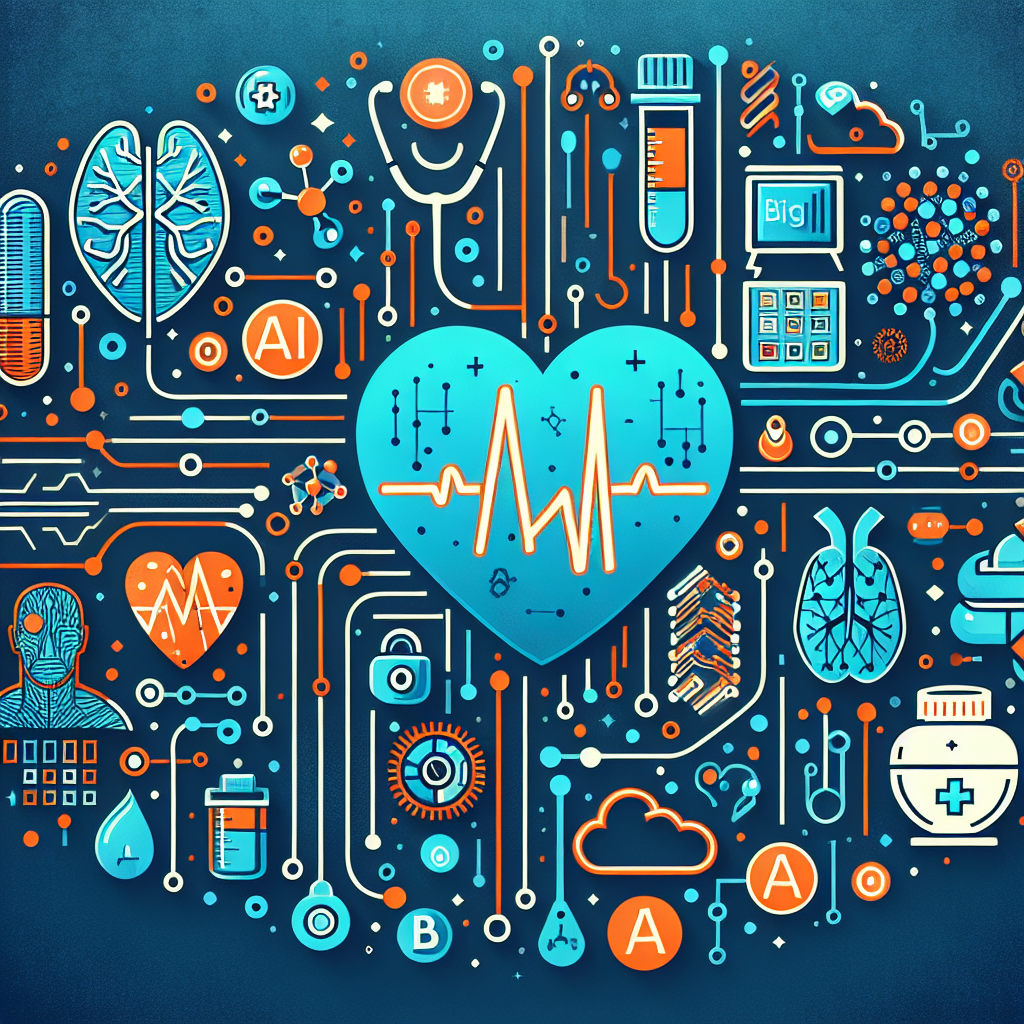The Impact of AI and Big Data on Healthcare
In recent years, the healthcare industry has seen a significant transformation with the incorporation of artificial intelligence (AI) and big data analytics. These technologies have revolutionized the way healthcare providers deliver care, diagnose diseases, predict outcomes, and manage patient data. The use of AI and big data in healthcare has the potential to improve patient outcomes, reduce costs, and enhance the overall efficiency of the healthcare system.
AI in Healthcare
Artificial intelligence refers to the simulation of human intelligence in machines that are programmed to think and learn like humans. In healthcare, AI has been used to develop algorithms that can analyze and interpret complex medical data, such as images, lab results, and patient records. This enables healthcare providers to make faster and more accurate diagnoses, leading to better treatment outcomes for patients.
One of the most common applications of AI in healthcare is in medical imaging. AI algorithms can analyze medical images, such as X-rays, MRIs, and CT scans, to detect abnormalities and assist radiologists in making more accurate diagnoses. AI can also help identify patterns and trends in patient data to predict disease progression and recommend personalized treatment plans.
Another area where AI is making a significant impact is in predictive analytics. By analyzing large amounts of patient data, AI algorithms can predict the likelihood of certain health outcomes, such as hospital readmissions, complications, and mortality. This information can help healthcare providers intervene early and prevent adverse events, ultimately improving patient outcomes.
Big Data in Healthcare
Big data refers to the large volume of structured and unstructured data that is generated in healthcare, including patient records, medical images, lab results, and genomic data. Big data analytics involves the use of advanced algorithms to analyze and extract insights from this data, enabling healthcare providers to make more informed decisions and improve patient care.
One of the key benefits of big data analytics in healthcare is the ability to identify patterns and trends in patient data that can inform clinical decision-making. By analyzing large datasets, healthcare providers can identify risk factors for certain diseases, predict disease progression, and tailor treatment plans to individual patients. This personalized approach to healthcare can lead to better patient outcomes and a more efficient healthcare system.
Big data analytics is also being used to improve population health management. By analyzing population-level data, healthcare providers can identify trends and disparities in healthcare outcomes, and develop targeted interventions to improve the health of specific populations. This can help reduce healthcare costs, improve access to care, and ultimately improve the overall health of communities.
FAQs
1. How is AI being used in healthcare?
AI is being used in healthcare in a variety of ways, including medical imaging, predictive analytics, and personalized medicine. AI algorithms can analyze and interpret medical data to assist healthcare providers in making more accurate diagnoses, predicting disease progression, and recommending personalized treatment plans.
2. What are the benefits of using big data analytics in healthcare?
Big data analytics in healthcare enables healthcare providers to identify patterns and trends in patient data, personalize treatment plans, and improve population health management. By analyzing large datasets, healthcare providers can make more informed decisions, improve patient outcomes, and reduce healthcare costs.
3. How does AI and big data impact patient care?
AI and big data analytics can improve patient care by enabling healthcare providers to make faster and more accurate diagnoses, predict disease progression, and personalize treatment plans. This personalized approach to healthcare can lead to better patient outcomes, reduced healthcare costs, and a more efficient healthcare system.
4. What are the challenges of implementing AI and big data in healthcare?
Some of the challenges of implementing AI and big data in healthcare include data privacy and security concerns, interoperability issues, and the need for specialized training for healthcare providers. Additionally, there may be resistance to change from healthcare providers and patients who are unfamiliar with these technologies.
In conclusion, the impact of AI and big data on healthcare is undeniable. These technologies have the potential to revolutionize the way healthcare is delivered, improve patient outcomes, and reduce healthcare costs. By harnessing the power of AI and big data analytics, healthcare providers can make more informed decisions, personalize treatment plans, and ultimately improve the health of populations. As AI and big data continue to advance, the future of healthcare looks brighter than ever.

